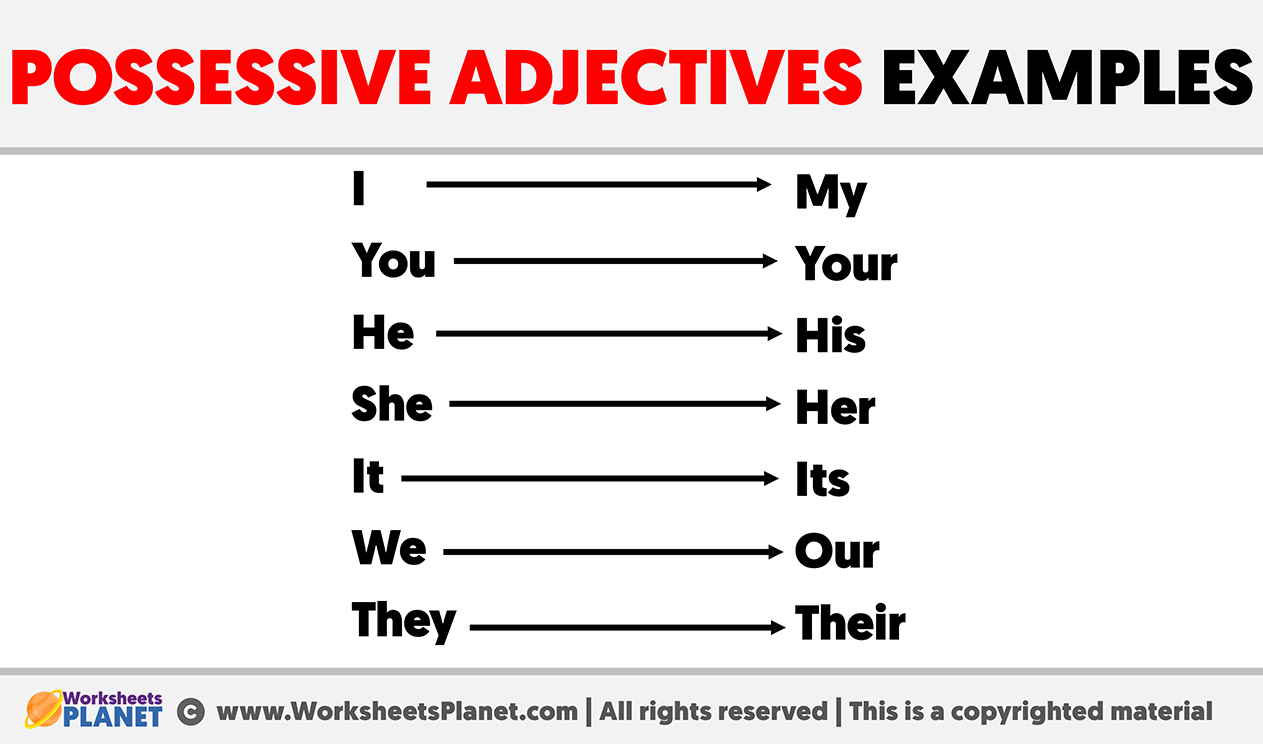A possessive adjective in English grammar is a modifier used to show ownership or possession.
It appears before a noun and indicates to whom or what something belongs.

Common examples include “my,” “your,” “his,” “her,” “its,” “our,” and “their.”
For instance, in the phrase “her book,” “her” is the possessive adjective, indicating that the book belongs to the person identified as “her.”
| Possessive Adjective | Personal Pronoun |
|---|---|
| My | I |
| Your | You |
| His | He |
| Her | She |
| Its | It |
| Our | We |
| Their | They |
Some examples of short sentences with possessive adjectives
- My car is red.
- Explanation: “My” is a possessive adjective because it indicates that the car belongs to the speaker.
- Her book is on the table.
- Explanation: “Her” is a possessive adjective because it shows that the book belongs to a female person.
- Their house is big.
- Explanation: “Their” is a possessive adjective because it signifies that the house belongs to a group of people, not just one person.
- Our dog loves to play fetch.
- Explanation: “Our” is a possessive adjective because it reveals that the dog belongs to the speaker and someone else (e.g., a family member).
- Your computer is fast.
- Explanation: “Your” is a possessive adjective because it indicates that the computer belongs to the person being addressed.
- Its fur is soft.
- Explanation: “Its” is a possessive adjective because it shows that the fur belongs to a non-human or neutral entity (e.g., an animal).
- His phone is ringing.
- Explanation: “His” is a possessive adjective because it tells us that the phone belongs to a male person.
- Their children are playing in the park.
- Explanation: “Their” is a possessive adjective because it demonstrates that the children belong to a group of people (e.g., parents).
- My sister’s room is tidy.
- Explanation: “My” is a possessive adjective because it indicates ownership by the speaker, and “sister’s” is a possessive adjective that shows that the room belongs to the speaker’s sister.
- Your cat’s tail is fluffy.
- Explanation: “Your” is a possessive adjective because it denotes ownership by the person being addressed, and “cat’s” is a possessive adjective indicating that the tail belongs to the cat.

